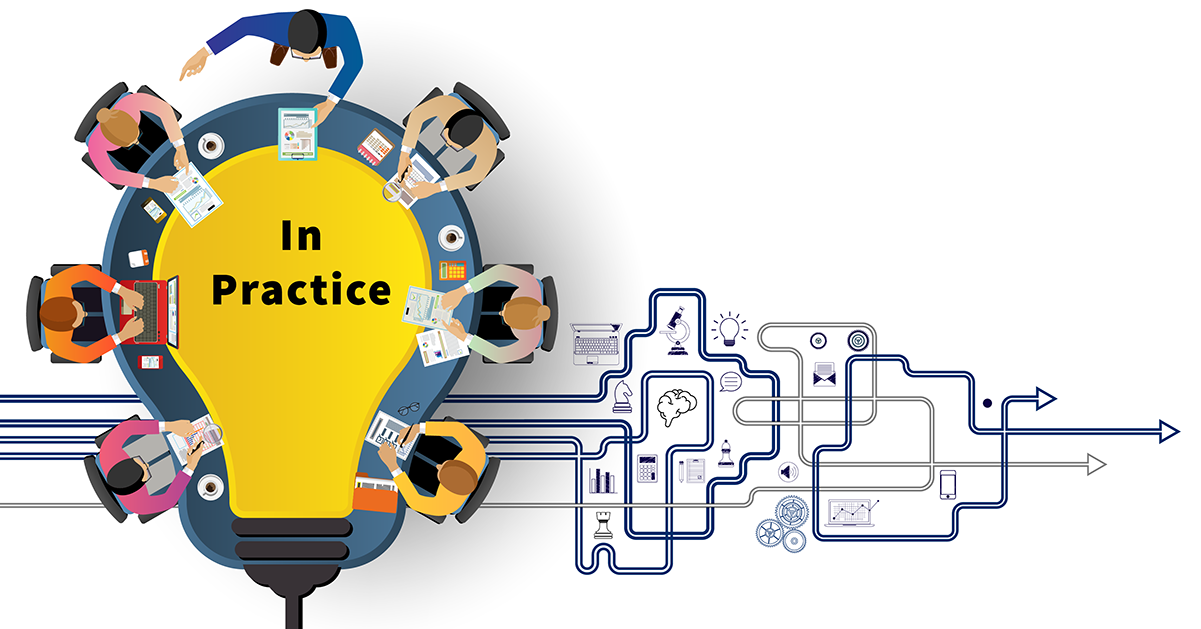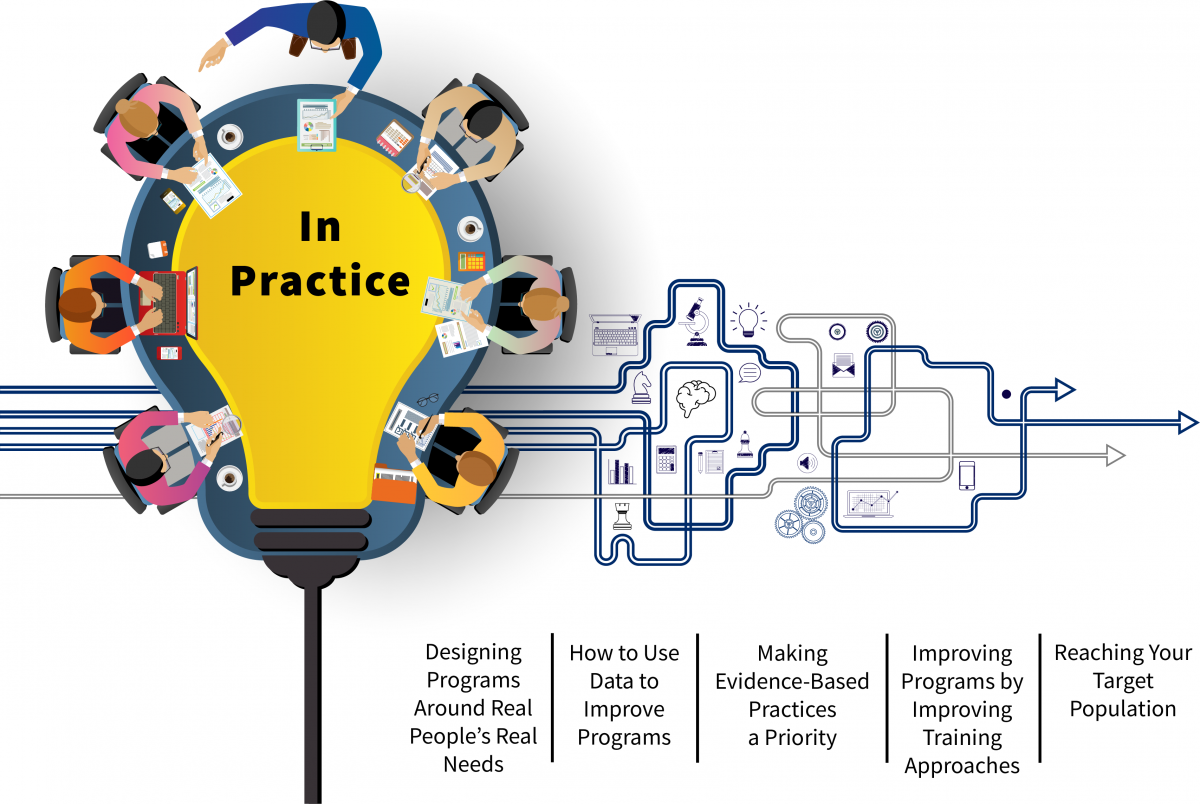Lessons for and from Practitioners
Looking Ahead to “In Practice” Blog Posts in 2020

MDRC launched the In Practice blog in April 2019, creating a platform to share lessons from our collaborative work with practitioners. We’re pleased that it has attracted an audience interested in practical applications of our research. Whether you’re a program director, a staff member, a funder, or a researcher, we hope these insights from the front lines of service delivery can inform how you address challenges that programs commonly face.

For us, collaborating with practitioners to strengthen their programs is closely connected to building evidence that others can learn from. We depend on practitioners’ on-the-ground perspectives and expertise to inform all the stages of an evaluation. In turn, we use our studies’ frameworks to support practitioners as they analyze their programs in real time, harnessing data to identify strengths and weaknesses, and using data-derived insights to improve their programs. At the end of the day, our mission is a shared one: learning what works so that organizations can provide strong, effective services to their communities and help participants achieve their goals.
The blog reflects what we’ve learned working side by side with program managers and staff in different kinds of partnerships. These posts speak to many of the pressing issues educators and social service providers face. We hope that the approaches described in this blog — like using a participant-centered approach to service design and delivery, incorporating “learning cycles” into practice to help figure out if our efforts actually work, and offering evidence-based services at scale — can be adapted and incorporated to serve your specific program needs and challenges. We hope you’ll keep reading throughout the new year. Our line-up of topics for 2020 includes:
Designing programs around real people’s real needs
- Many programs in MDRC studies have an explicit goal of serving specific groups—fathers, expectant parents, and young people under the age of 18—and connecting with them effectively is a first step. We’ll share what we’ve learned about targeted outreach to these groups and creating marketing strategies that increase their participation.
- We’ll also share insights on setting up programs focused on participant needs and concerns, and how these strategies keep participants coming back for services.
How to use data to improve programs
- Identifying challenges, brainstorming solutions: Many programs have a wealth of information about their participants, service delivery, and outcomes, but don’t always have the time to use it to its full potential. We’ll share ideas on using data to help you understand common challenges and testing whether solutions are a good fit.
- Mapping processes: Alongside data analysis, we often use tools like process maps to understand where strengths, weaknesses, and bottlenecks occur in service flows. We’ll show examples and share templates from a range of programs.
- Gathering participant perspectives: Hearing what participants have to say about what they like—and don’t like—about programs is an important building block of program improvement. We’ll look at how programs can collect these data and incorporate participant voices into services.
Making evidence-based practices a priority
- Outreach and marketing are two essential aspects of recruitment strategies. The MDRC team at the Center for Applied Behavioral Science (CABS) will share insights on outreach and marketing strategies, zooming in on the essential elements of an effective communication strategy.
Improving programs by improving training approaches
- Our December post presented a broad framework for organizing staff training. In the coming months, we’ll take a more detailed look at how to support training efforts by:
- Engaging adult learners using techniques that go beyond lectures.
- Reinforcing post-training learning through coaching, one-on-one supervision, and virtual platforms like on-line learning communities.
Reaching your target population
- Building a strong network of referral partners is a vital part of many agencies’ effective recruitment of participants. We’ll review different outreach strategies we’ve seen in action, give examples of types of partnership agreements, and highlight different types of messaging that programs can use to emphasize the benefits of working together.
We welcome your input on the blog as well as ideas for future topics you’d like to see addressed here. Please e-mail us at InPractice@mdrc.org.






